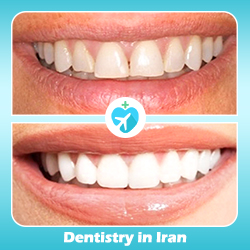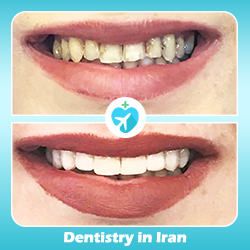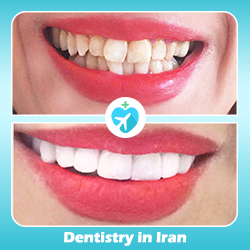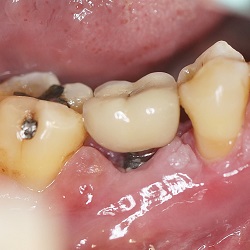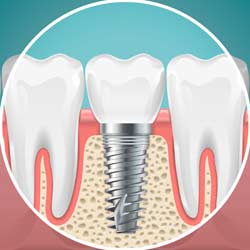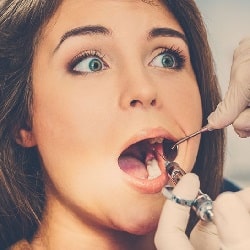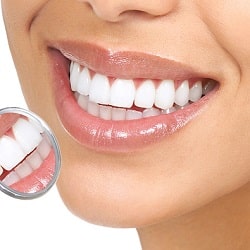Tooth decay is the result of erosion on the hard surface of teeth, which can eventually lead to openings in the enamel. A combination of factors can contribute to tooth decay, including poor oral hygiene, micro-organisms in the mouth, and excessive eating and drinking sugary foods and drinks.
Clearly, many people have tooth decay problem and if left untreated, the openings can get bigger and deeper and result in toothache, infection or even tooth loss. All these create the necessity to adopt proper strategies to prevent or slow down tooth decay. Here are 12 tips for tooth decay prevention.

Flossing is a great way to prevent your teeth from damage.
How to prevent tooth decay?
1- Brush your teeth twice a day, preferably with a fluoride-containing toothpaste. Fluoride can make your teeth stronger by speeding up the mineralization of the teeth enamel and consequently prevent tooth decay and promote repair. Furthermore, acids are less able to cause tooth erosion when fluoride is present.
2- Floss thoroughly. Flossing removes the food particle from between your teeth, as well as the plaque. These food residues, if not removed, can be used by bacteria as a source of food and promote tooth decay and damage your teeth. flossing can also greatly contribute to your gum health.
3- Use mouthwash on a daily basis. Mouthwash can help disinfect your mouth and kill bacteria that cause tooth decay, and if it contains fluoride, it helps your teeth get stronger.
4- Diet has a major effect on your teeth health. Calcium is absolutely necessary for healthy bones and teeth because it is needed for the mineralization process. Foods such as milk, cheese, yogurt, salmon, almonds, green leafy vegetables, and foods, which are rich in calcium, will promote teeth health. Phosphorus, in foods like eggs, fish, lean meats, dairy products, nuts, and beans also is needed for the mineralization process and as a result, is deemed a necessity for your teeth. Moreover, it has been shown that vitamin C can help with slowing down tooth decay, which can be found in abundance in citrus fruits, tomatoes, peppers, broccoli, potatoes, and spinach.
5- Don’t snack frequently. Try to minimize the frequency of eating between meals. Snacking provides food sources for bacteria that cause tooth decay.
6- Foods that are sticky, sugary, or full of carbohydrates are especially bad for teeth. The worst example is sour candy. Sour candies contain both acids and sugar and are also sticky. This combination creates the worst nightmare for your teeth. Instead of sour candy, if you crave something sweet, eat a piece of chocolate, which can be washed away with ease.
Bread is another food that can contribute to tooth decay. When the bread is chewed, enzymes in your saliva break down the carbohydrates in the bread into simple sugars, which stick to your teeth and will be used as food for bacteria and cause cavities. If you have to eat bread, it is better to go for whole wheat bread which contains less added sugar than, say, white bread.Alcohol also promotes tooth decay. It is obvious that alcoholic drinks are not healthy, but they are harmful to teeth in a special way. Alcohol will dry out the mouth. Saliva has many roles in preventing teeth decay by creating equilibrium in mouth and also mechanically washing food particles away. So, washing your saliva away by alcohol is not really a good idea.
Carbonated drinks are full of sugar and are heavily acidic. As we have discussed before, they both are very bad for teeth enamel. But worst of all, because of some gum-like substances existing in many carbonated drinks, this compound of acid and sugar will stick to your teeth all day. That essentially makes carbonated drinks the worst combination possible for your teeth. However, if you have drunk some, don’t brush your teeth immediately because it has been shown that this practice can actually damage your teeth.
Generally, any acidic foods can cause tooth decay. Unfortunately, citrus fruits are not an exception since they are acidic too. We don’t recommend that you stop consuming them but encourage moderate consumption of them since they can promote both your overall and teeth health in other ways.
7- Don’t chew hard foods, including ice. Chewing hard foods can lead to a macro-crack or a micro-crack that can structurally weaken your teeth and make the way for the erosion and decay. It is okay to use ice to chill the beverages, but don’t chew it.
8- Take fluoride supplements. Fluoride can be taken directly by mouth as a supplement for teeth. However, in many cities, tap water contains fluoride in decent amounts to actually promote teeth health. But if it is not the case, you can ask your dentist to prescribe it for you. When fluoride enters the bloodstream, it will directly go to your teeth and become part of the teeth structure. This way, mineralization happens much faster than just through surface fluoride. This is especially helpful for children when they are developing teeth.
9- Consider getting dental sealants (a protective coating) on your molars (back teeth). As these teeth are usually used for chewing, applying sealants on them can protect them from erosion caused by chewing.
10- Visiting your dentist regularly is also very important. First, because you need to clean your teeth professionally at least once a year. Second, because your teeth might already have some problems and frequent checkups help you deal with these issues before they become too serious and expensive to manage.
11- According to studies, chewing gums that include xylitol can temporarily stop or slow down the growth of bacteria in your mouth and retard tooth decay. This, however, is controversial and needs more research to prove to be effective.
12- Another tooth prevention approach, which is relatively new, is planting special material between your teeth that release fluoride slowly into the mouth. This has proved to be effective in fighting teeth decay but because of the toxic effects of fluoride in high doses, necessary precautions should be taken.
With all these instructions and tips, you can easily prevent or slow down teeth decay in its earlier stages. Although these habits may seem easy, we urge you to put some effort into implementing them in your life. Besides these rather traditional methods to prevent tooth decay, scientists are working on a type of toothpaste and mouth rinses that can actually reverse and heal cavities that have not progressed into later stages. But until then, these are the best practices and following them will ensure that you are happy and have healthy teeth.

